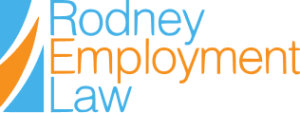Marijuana in the Workplace: What does this mean for Employers?
The legalization of marijuana is on the horizon. What does this mean for Canadian employers? Employers should be aware that marijuana has a variety of impairment effects, including reduced reaction times, irritability, loss of focus, lethargy, disengagement with reality and poor decision making.
On March 30, 2017, Rodney Employment Law and DriverCheck hosted a webinar titled, “Weed in the Workplace” that addressed challenges in the workplace in relation to medical marijuana and its pending legalization. On this webinar, we discussed the challenges of cannabis in the workplace and the potential impact it will have on employers and employees, including the effects of marijuana on one’s duty to perform safety sensitive roles and the legal do’s and don’ts of marijuana in the workplace.
This webinar sold out in approximately 35 minutes. While we were not surprised to see employers taking an interest in the topic, we did not anticipate the degree of their interest. The buzz around marijuana these days is blatant and employers across the country want to understand how it may impact their workplaces.
This week, a Sunwing pilot was sentenced to eight months in jail for showing up to work impaired and attempting to control an aircraft with a blood alcohol level that was three times the legal limit.
On Monday, the Ontario Superior Court of Justice dismissed a motion brought by the union representing TTC employees to block the implementation of random drug and alcohol testing of TTC employees.
In upholding the TTC’s decision to require employees to take random drug and alcohol tests, the Court noted that “The TTC’s workplace is literally the City of Toronto and all the people who move about the city have an interest in the TTC safely taking its passengers from one place to another.”
These types of cases are a clear reminder to employers that the balance between safety and human rights/privacy is key. Employers have a legal duty to “take every precaution reasonable in circumstances to protect a worker” (Occupational Health and Safety Act, section 25). As an employer, you are responsible for the safety of your workers. For the TTC or Sunwing, this element was heightened further given that the public’s safety is at stake.
While safety is a critical concern, it is important that employers are also mindful of human rights. It is illegal to discriminate against employees based on the protected ground of disability. If medical marijuana is required for the purposes of treating an employee’s disability, the employer has a legal obligation to accommodate the employee to the point of undue hardship. It is worth noting that “Undue Hardship” is a very high standard to meet where severe negative effects outweigh the benefits of accommodation.
With the legalization of recreational marijuana on the horizon, employers will have to navigate through an even more complex workplace. Employers will likely need to manage recreational marijuana in the workplace in the same or similar way as alcohol-use is managed. While this could prove to be more challenging, there are a few key points that employers should be mindful of.
Be proactive!
- Educate yourself and get proper advice.
- Make sure to balance the employee’s human rights/privacy against any safety concerns.
Policies and Practices:
- It is essential to implement proper policies and practices regarding Drugs and Alcohol in the Workplace.
- This is particularly important for safety-sensitive workplaces.
- Ensure that policies avoid any potential discriminatory impacts.
- If applicable, testing provisions need to clearly be bona fide (legitimate) requirements of the job and necessary to achieve safety.
- Testing policies cannot automatically impose certain discipline for violations.
- Policies should set out a process to obtain medical information
Accommodate when Necessary
- Do not ignore an employee’s request for accommodation
- Do your due diligence and make proper inquiries
- Employers must accommodate up to the point of undue hardship
- Medical information must be the least intrusive
Think Before you Act!
- If an employee tests positive for a random drug test – you cannot automatically impose certain discipline for violations.
- You must consider potential accommodation for certain situations
- This may include discipline that is less severe than dismissal, as well as offering treatment or resources such as rehabilitation programs.
This article is not intended as legal advice. If you are an employer seeking assistance with drug and alcohol testing policies or programs for your workplace, please feel free to contact us directly.



